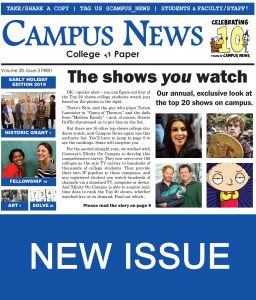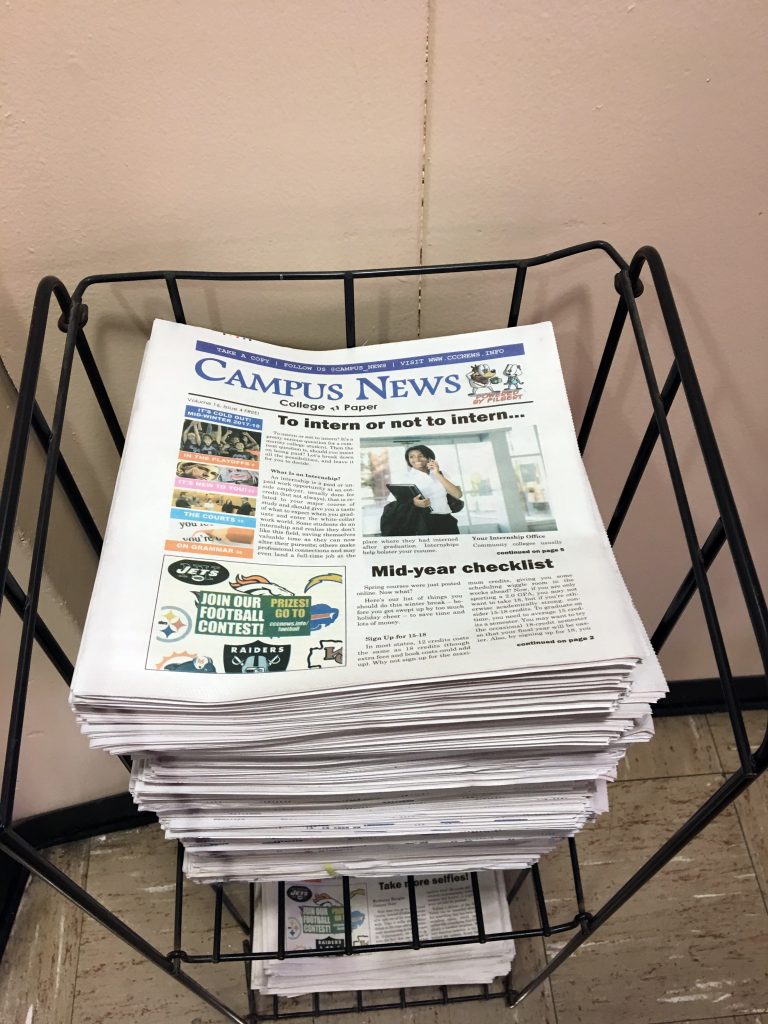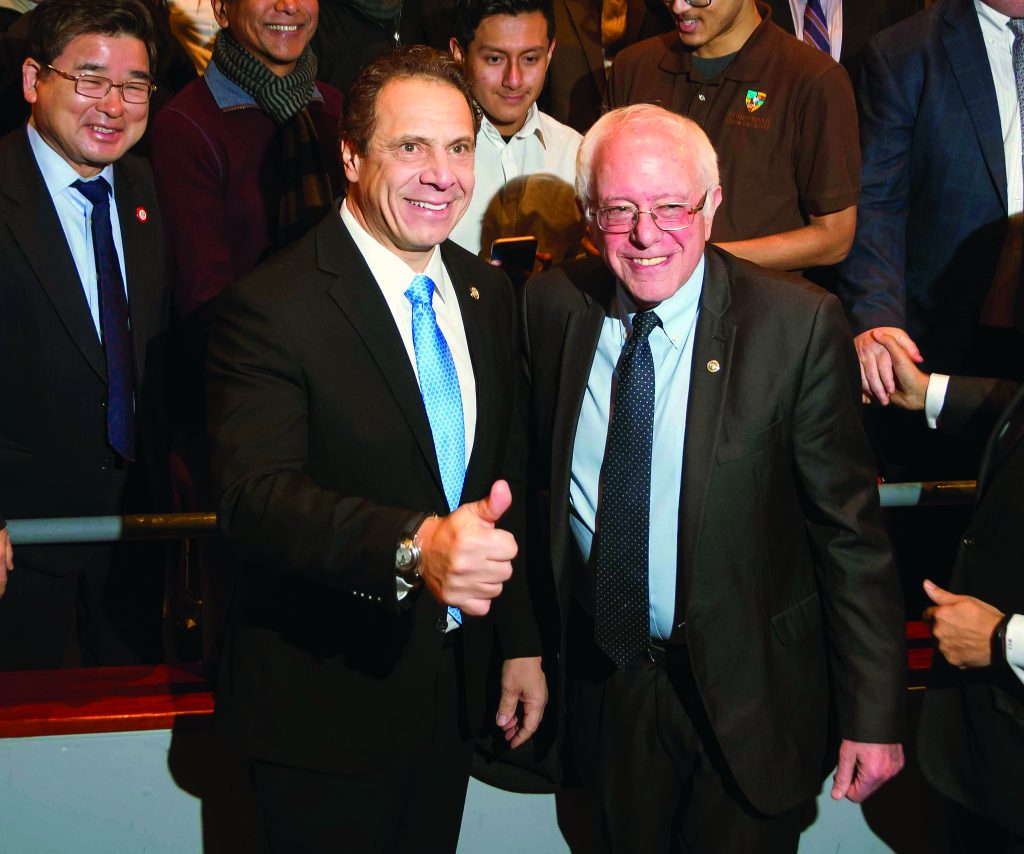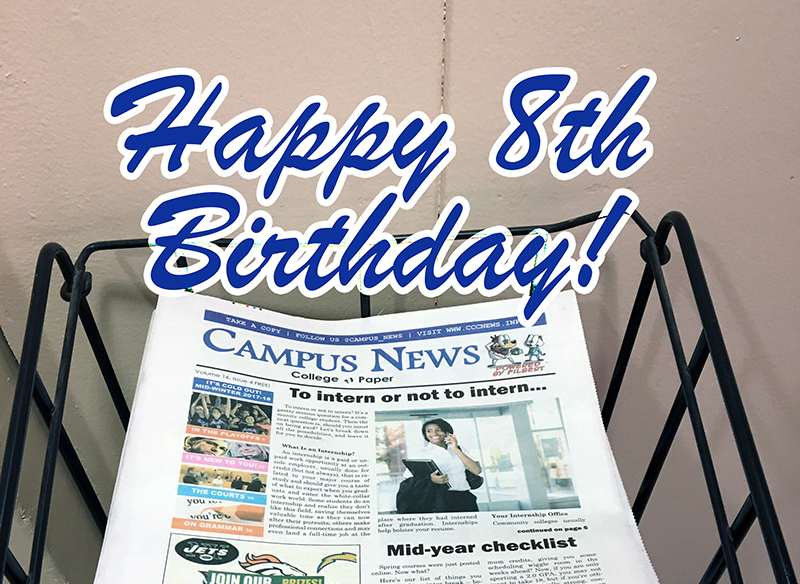By Kaylee Johnson
Campus News
I’m finally deleting my dating apps. They serve as a primitive 2 a.m. crutch, but ultimately lead to a hollowed out swimming pool at a ritzy country club. What’s the point? Some time back I started referring to long, soulful, late night conversations I have with men online as “emotional one night stands.” There’s an undertone of closeness, a hint of familiarity in air, but I can’t get over how deeply artificial it all feels, so stunningly detached. Here are some of the men I have met along the way; intimacy car air fresheners:
Elliot, an eighteen year old film student at a Boston area college, speaks eloquently and pompously about his dreams of making the “first great film.” In his bio there’s a picture of him wearing oversized retro glasses, drinking orange soda out of a glass bottle, flaunting his five’oclock shadow and lit mag. In another picture he looks dazed, in a nineties style windbreaker, in an uptown subway station, carrying an expensive camera with a loose, flippant grip. He asks me if I have seen any of his short films, as they have won some minor awards at obscure festivals. I tell him I haven’t, and his perturbed persona throbs with embarrassment and sobriety.

Steven spends his summers lifeguarding in the Hamptons amongst the well off escapists and the fools gold weekenders. His tan lasts until October, so he feels no need to pack away his muscle shirts until Halloween. He lives in a frat house and raves about the boozy parties he throws. “My rebound time is tight,” he claims the morning after an 80s film themed party. I jokingly tell him that he is channeling “National Lampoon’s Animal House,” and he matter of factly tells me that the film is from ’78, and he only throws 80s parties. He would know.
Tanner is a caricature of a person, and he is dreadfully aware of it. It’s 2 p.m. on a Sunday and he is begging me for nude photos while I sit cross legged on the floor lesson planning for my students. I deny him, and instead start discussing philosophy; nihilism and death. He doesn’t know how to react to my intensity, so he attempts to dominate it. For six hours we debate literature, social patterns, societal molds, before he casually writes, “I went to mass today.” I flounder in the sophisticated poetry of the message and try to fight off my Catholic guilt before forcing him to elaborate. Born into an atheist home, he tells me he “found God” this year, down on his knees during a life-altering nervous breakdown. I listen, and he oozes with mania. “If I have learned anything this year, it’s that feminism is a joke and women don’t want what they claim to want from men. Gender roles are absolutely necessary for a society to thrive.” I block him and turn on “Pulp Fiction.”
Marcus treats me like an archetype, and I revel in it. We’re in a crystalline room without doors, and he’s painting me alluringly. My legs are crossed, hair undone, reading a Dashiell Hammett novel, trying to avoid eye contact. Marcus asks me philosophical questions about my thought processes while he cleans his brushes. “Explain your relationship with nostalgia.” I purse my lips and explain that I have no relationship with nostalgia, refusing to lift my eyes from my book. He’s in awe of the imaginary. I’m in awe of Hammett’s description of Brigid O’Shaughnessy’s artificial coyness. He shows me the finished portrait, beautiful in nature, birthed in youthful enthusiasm. He names it the “eccentric writer.” I take it home, hang it over my bed with rusted nails that have been in my junk drawer for a decade. A few weeks later I notice that the figure in the painting has blue eyes, I have brown. This woman, whose purpose is to cover a hole in the wall, possesses a false saintliness; a canvas is not a mirror.
George is an NYU film student who likes to discuss the intricacies of Jim Jarmusch and Tarantino films with me late at night; realism versus surrealism versus the place in the middle, the place where I exist. As writers, we never express our emotions overtly, that would be cheating. Besides, it’s far more comfortable to discuss the inspiration behind “Kill Bill” than to lift one’s dress and expose gaping voids.
As a writer, I have gained more than I have lost using dating apps, studying various character types and personality quirks. The apps can be used for more than sex and bedroom talk, but as stated earlier, eventually the luster dies; there’s just no endurance in swiping left and right.








Facebook Comments